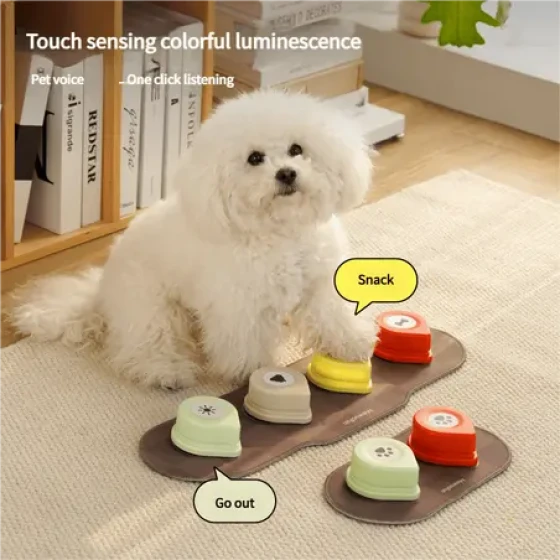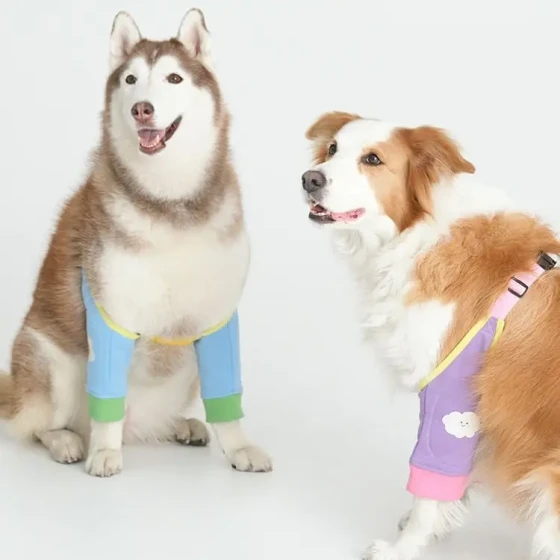How to Correct Bad Behaviors in German Shepherd Dogs

Whether it is a German Shepherd or other animals, more or less there will be some bad behaviors. So how should we correct some bad behaviors in German Shepherd dogs? Actually, these require dog owners to pay attention to details in daily life!
Territorial Aggression Behavior
As the saying goes, German Shepherds do not mind poor homes. This is due to their territorial awareness. Every part of the owner's home is their territory, and any stranger or animal’s intrusion is considered an invasion. Specific manifestations include barking when the door sounds and lunging to bite strangers entering the house.
The rudeness towards visitors caused by a German Shepherd’s territorial awareness should be corrected promptly to prevent it from becoming a habit. For guard-type German Shepherds, about 30% punishment and 70% reward should be used. At the same time, use the same gesture to let the German Shepherd understand that this is the owner's friend. Being scolded or hit in front of strangers is very embarrassing. After many occurrences, it will form a conditioned reflex, believing their interests are infringed when people come. This will make them even less friendly.
It should be noted that visitors should only pet the German Shepherd gently, such as speaking softly or stroking. They should not give food to prevent destroying the German Shepherd’s habit of refusing food from strangers. The owner should not play roughly with visitors to avoid the German Shepherd misunderstanding the owner is being attacked and stepping in to attack the visitors.
Dominance Aggression Behavior Among German Shepherd Groups
Two male German Shepherds who are interested in the same female German Shepherd will fight each other until one runs away. This kind of aggression sometimes comes at the cost of blood. Therefore, German Shepherds in heat without mating should be leashed, and during the heat period, avoid other German Shepherds. Correction involves reinforcing the dominance and submission hierarchy among the group. First, observe without being noticed which German Shepherd holds the dominant position. Then, when the owner interacts with the group, give the dominant German Shepherd all respect and privileges. For example, show it more attention, let it go out first during walks and always lead the way. If other German Shepherds do not submit, the owner should punish them. This strengthens the dominance and submission hierarchy.
Acceptance of dominance and submission roles by German Shepherds is instinctive and should not be artificially disrupted. If fighting continues among the group when the owner is absent, it indicates that the hierarchy has not been established or confirmed. The owner needs to help the group establish this hierarchy.
Correction of Abnormal Aggression Behavior
In daily life, some behaviors require your attention to avoid unnecessary trouble. For example, be aware of a German Shepherd’s jealousy. Once jealous, the German Shepherd may attack the object of jealousy.
A usually very gentle German Shepherd may show some jealousy when noticing the owner favors another German Shepherd or person. Some show signs of depression, reluctance to move, or stare at the owner and the "new fave"; some show abnormal aggression behaviors. They may occasionally make low growling sounds to express dissatisfaction and try to drive away the "enemy." If ineffective, they immediately fight until they drive the opponent away. Sometimes, due to fear of the owner, the dog appears calm when the owner is present but reveals its true behavior and starts attacking once the owner leaves. The attack targets may be anyone or any animal other than the owner, so protective measures for other pets and children are necessary. Introducing them first can help regulate the German Shepherd’s emotions and reduce jealousy.
Correcting aggressive behavior should first address the German Shepherd’s psychological issues. Avoid physical punishment as it will only aggravate the anger. Let the German Shepherd have some interactions with others or other dogs, for example, playing together under the owner's supervision. When the owner sees friendly behavior, timely rewards, such as petting and food, should be given. If the dog is emotionally excited at first, hold its body and stroke its head and chest to let it feel cared for. (Source: PetsZone)





